CMN 300
Communication in the Computer Industry

1. Course Description
In this workshop course, students learn to present technical information to audiences with a range of technical knowledge. The course teaches students various forms and content strategies relevant to the computer industry so they can communicate clearly and persuasively in online and traditional media. Students analyze and respond to professional situations involving documentation plans, style guides, usability testing and project planning.
Last Revised
Prerequisites
Note: This course is available only to students in the Computer Science program.
Delivery
Lab: 3 hours
2. Course Objectives & Learning Outcomes
- To develop sensitivity to language, tone and organization of textual, visual and oral messages
- To analyze audiences specific to the computer industry such as clients, users, and colleagues
- To practice writing and speaking skills, such as proposing ideas, collaborating with peers, and assisting users
3. Topics Covered
- Professional communication theory and practice
- Strategies for routine and persuasive communication
- Visual and document design
- Short reports and proposals
- Presentation skills
- Effective online writing
- User documentation and instructions
- Project collaboration
All topics will be covered, but necessarily in the order listed above.
4. Teaching Method
Workshops
In this workshop course, students prepare assignments with the guidance and supervision of the instructor.
Graded Assignments
Students will prepare at least four written assignments, some of which may be completed in class. Additional work may be assigned. The weighting of each assignment will be announced by the instructor.
5. Course Materials
Textbooks
Course reading materials will consist of recent journal articles, web texts, and other material that will be provided in electronic form on D2L Brightspace. Additional readings may be added by the instructor.
6. Policy
6.1 University Policies
Students are required to adhere to all applicable university policies found in their Online course shell in D2L and the Course Outline Policies.
6.2 Print and Digital Copying Guidelines:
Toronto Metropolitan University complies with Canada’s Copyright Act which protects both creators/owners and users of copyrighted materials. Students should familiarize themselves with TMU Copyright policies and procedures, and contact the Copyright and Scholarly Engagement Librarian at copyrt@torontomu.ca for questions, concerns and clarification of the copyright rules.
6.3 Turnitin.com
Turnitin.com is a plagiarism prevention and detection service to which Toronto Metropolitan University subscribes. It is a tool that helps instructors determine the similarity between student work and the work of other students who have submitted papers to the site (at any university), Internet sources, and a wide range of books, journals, and other publications. While it does not contain all possible sources, it gives instructors some assurance that students’ work is their own. No decisions are made by the service; it generates an “originality report,” which instructors must evaluate to judge whether something is plagiarized.
Students agree by taking this course that their written work will be subject to submission for textual similarity review to Turnitin.com. All submitted papers will be included as source documents in the Turnitin.com reference database solely for the purpose of comparing the similarity of such papers. Use of the Turnitin.com service is subject to the terms-of-use agreement posted on the Turnitin.com website. Students who do not want their work submitted to this plagiarism detection service must, by the end of the second week of class, consult with their instructor to make alternative arrangements. Even when an instructor has not indicated that a plagiarism detection service will be used, or when a student has opted out of the plagiarism detection service, if the instructor has reason to suspect that an individual piece of work has been plagiarized, the instructor is permitted to submit that work in a non-identifying way to any plagiarism detection service.
6.4 Email Communication
Toronto Metropolitan University requires that any official or formal email communication from students be sent from their official Toronto Metropolitan University electronic accounts.
6.5 Video and Audio Recording
No video or audio recording is permitted in class without the express permission of the instructor.
7. Learning Management System
Toronto Metropolitan University supports Brightspace by D2L as its official Learning Management System. University Policies governing Brightspace have been documented at the Courses @ Toronto Metropolitan University Privacy and Security website.

